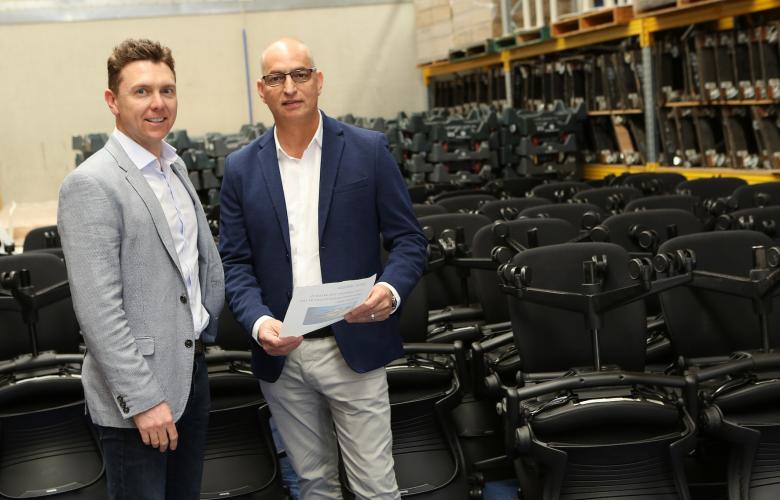The successful green start-up tackling corporate furniture waste
Contact
The successful green start-up tackling corporate furniture waste
Green Furniture Hub’s innovative model reduces the amount of office furniture being directed to landfill while providing a low-cost procurement pathway for small-to-medium sized businesses.
An innovative Australian start-up is seizing the opportunity to sustainably manage the staggering amount of furniture waste generated from corporate office strip-outs.
Working with tenants undertaking relocations, refurbishments and other real estate projects, Green Furniture Hub (GFH) combines technology and logistics to intercept furniture that otherwise would be destined for landfill and rehomes it with other businesses. It’s an end-to-end service from initial asset audit, to the listing on the GFH marketplace, marketing, handling logistics, dispatch and reporting.
GFH Chief Executive Officer, Justin Hatchett said “We have designed our services to not only help organisations reduce their relocation costs through landfill diversion, but also help them drive measurable environmental and social outcomes.”
“We believe organisations would fundamentally choose not to send perfectly serviceable furniture to waste if the alternatives were scalable and made easy. We also believe it’s never been more important to re-set thinking about what is waste and encourage businesses to better manage their resources by engaging with circular economic business models.
“It’s a significant environmental problem in the commercial real estate sector with an estimated 30,000 tonnes of furniture from office strip-outs being directed to landfill each year in our capital cities.
“To address this market inefficiency, we need to encourage take-up at large volumes in short time frames. On the customer side of our marketplace we don’t put prices on the available furniture. Instead, businesses pay a small flat fee of $250 to fill up their carts with a bulk quantity (15 cubic metres) of whatever items they want from the listed furniture. This opens up a low-cost procurement pathway for small-to-medium sized businesses and charities, while extending the serviceable life of quality furniture items and positively impacting the environment in the process,” Mr Hatchett said.
Using this model, in 2019 GFH was successful in diverting more than 80 tonnes from landfill, recycling 93 tonnes of metal and re-homing over 4,500 items including 2,500 office chairs, 400 pedestals and 40 fridges.
A member of the Green Building Council Australia, GFH currently operates in NSW, VIC and QLD.
More from The Business Conversation:
Meet the Aussie teamwear company giving a red card to plastic pollution
Consumers the key to changing unethical business behaviour
BioBag helps South Australia to lead in clean, green alternatives




